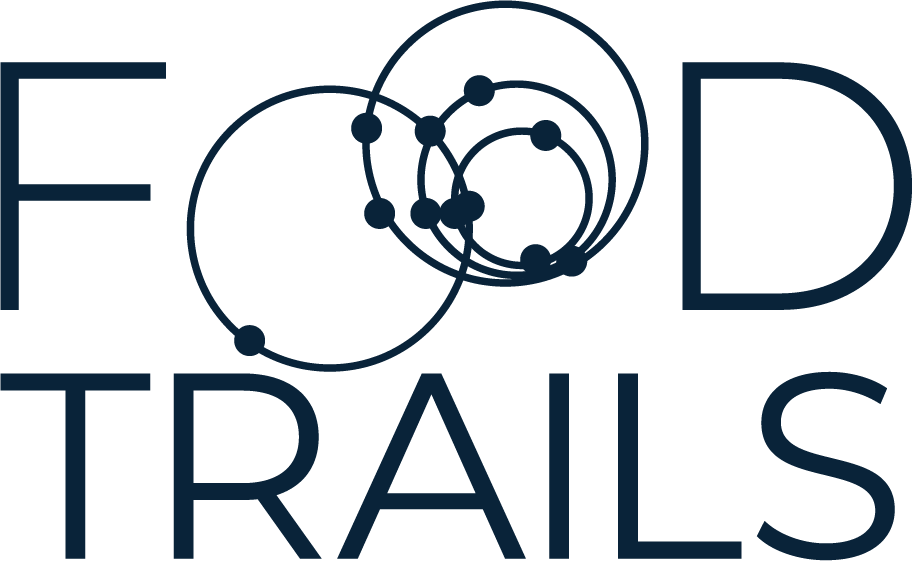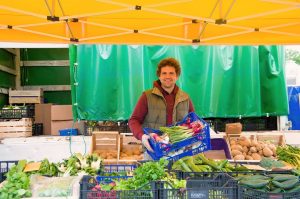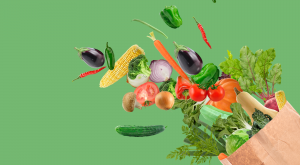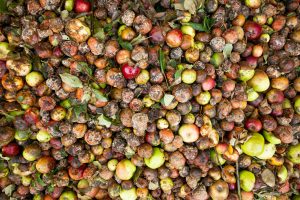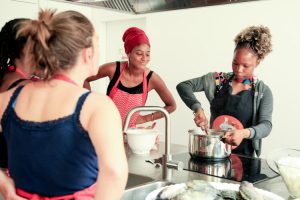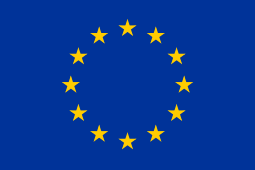From 15th to 17th November 2023, the Food Trails consortium gathered in the stunning city of Funchal, located on the Madeira island in Portugal, for the Annual Partner Meeting – Year 3, featuring three days of intense and exciting exchanges.
This meeting marked a significant milestone towards Food Trails’ objectives. Partner cities have completed the implementation of Living Labs and pilot actions, and with the help of researchers’ partners, are now entering the data monitoring and impact analysis phase.
As an innovative research project, Food Trails’ goal extends beyond sharing results and successes. Indeed, the overall aim of this partner meeting was to critically analyse project findings and modelise them for dissemination and exploitation, thus ensuring that other European cities and stakeholders will benefit from the project experience and knowledge.
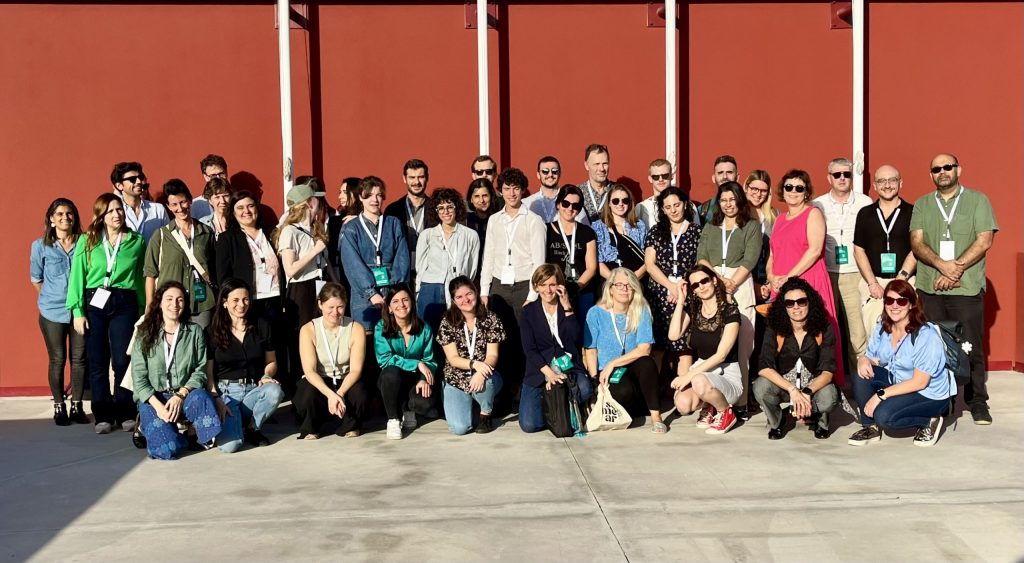
The extra touch that a hosting city can provide
Drums beating and bagpipes playing. The Food Trails meeting kicked off with a surprise — a live performance offered by a young band from one of the Funchal community centers. Then, Dr Helena Leal, the city’s Councillor for Education, took the floor to welcome the over 50 Food Trails’ representatives and to present the city’s significant results achieved as part of the project. Above all, she highlighted the launch of the local food strategy on 16 October, 2023, representing a milestone in the city’s journey towards a more sustainable food system, and the strong political commitment to it.
Other musical surprises delighted the Food Trails consortium, including popular music repertoire, that combined with colorful buffets, allowed us to taste not only local dishes, but also the work on sustainable diets and the effective collaboration with local partners.
Knowledge-sharing workshops on Food Trails Living Labs
Alongside specific sessions on project work packages (WPs), the Funchal gathering featured a series of knowledge-sharing workshops focusing on the Food Trails Living Labs.
- Lessons Learned Exchange Session. This workshop aimed to identify effective strategies and areas for improvement, exploring alternative approaches for future implementation. To initiate the discussion, city representatives took the stage, presenting their experience through the use of posters. View all posters.
- Scaling Elements Workshop. Through a card game based on the Quick Scan Lens for Replication methodology, cities shared the most crucial elements in their experience for transferring and expanding the Food Trail know-how to other entities.
- Monitoring Framework and Indicators Review Workshop. Measuring change is fundamental for planning the future of urban food systems. Food Trails cities were invited to share the three best indicators adopted in their local context to measure living labs’ results. Then, they compared these indicators with those of the MUFPP and RUAF, bringing to the surface potential improvements.
- Post-project financial support to Living Labs Workshp. Applying to other fund opportunities, establishing public-private partnerships, and reallocating internal resources from the municipal budget. During this session emerged how a combination of these approaches could contribute to achieving the financial sustainability of food-related initiatives.
The Food Policy Workshop
The overarching goal of the Food Trails project is to implement 11 food strategies, one for each partner city. To further this objective, a dedicated workshop on the approval and implementation of food policies was conducted.
At the beginning of Food Trails only 3 out of 11 cities had food policies. As we entered the project last year, significant successes are already there: by 2024 all cities will have implemented food strategies.
Using a new tool, developed within the Clever Food project, we attempted to explore and visualise the Multi-Level Governance of urban food policies, e.g. how administrative competences are allocated within the different governance levels (local, regional, national) and what kind of interaction there is between them.
Field visits
The programme of the Food Trails Annual Partner Meeting in Funchal included field visits to showcase and experience key places, actions, and results of Funchal’s Living Lab. Here is what we visited:
- The FUNLAB. The experimental food sustainability science center dedicated to educational activities especially for young people.
- One of the numerous urban allotment gardens, where citizens practice and learn about sustainable and organic production.
- ISOPlexis the activity run by the “Centre for Sustainable Agriculture and Agri-Food Technology Unit” of the Madeira University focused on research about agrodiversity and advanced technologies. One of its key facilities is the Genbank.
- Social Neighborhood of Santo Amaro Music@arte where food literacy projects are being implemented along with food surplus distribution, in collaboration with the municipal social housing company.
Worth mentioning, among Funchal’s key food locations, is the space that hosted the Food Trails event, Centro Cultural e de Investigação do Funchal, the former municipal slaughterhouse from the 1940s, recently renovated and converted into a cultural center, dedicated to exhibitions and events.
Takeaways
In the next months, preparations will be underway for the exchange of acquired knowledge with 28 European cities (cascading cities) through a replication process that will culminate with a dedicated workshop in May 2024.
In addition, the project is gearing up for the concluding event, which will involve the political engagement of the EU and other food expert stakeholders in the European food system, including organizations and activists in the sector.
For this reason, this year’s meeting has been of particular significance. Cities, along with researchers and all partners, have made a critical effort to analyze the experiences gained within 11 living labs during the implementation of 31 pilot actions.
The exchange through workshops has brought out the key lessons learned, identifying elements of scalability (upscaling, downscaling, and outscaling) among food activities and innovative solutions. All of this will contribute to creating case studies for next year’s exchanges and for the project’s final reports.
Additionally, as a specific result of the food policy workshop, an innovative mapping of the multilevel governance structure of the 11 Food Trails cities, as well as the identification of their most relevant food policy actions and public services will emerge.
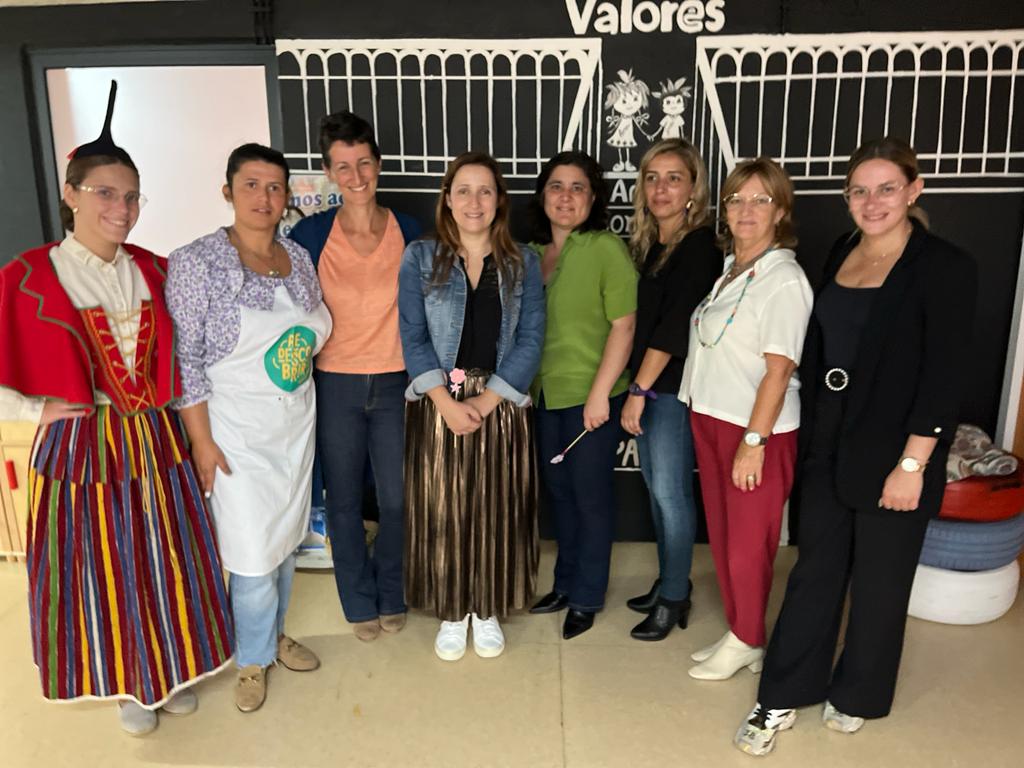
Aknowledgements
A heartfelt thanks to the city of Funchal and its Food Trails team for the warm welcome, fantastic organisation.
Special thanks to all the representatives of the consortium partners for their contribution to this inspiring event.
Exciting times ahead. Stay tuned!
